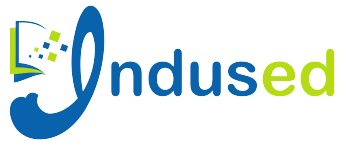Economic
Class 12 Humanities - Economics
The latest syllabus for Class 12 Economics in accordance with the CBSE has been unveiled for the academic year 2023-2024. This revised syllabus comprises eight units, encompassing essential subjects like national income, money and banking, income and employment determination, government budget and its impact on the economy, balance of payments, India’s development experience, and an economics project. To access the complete syllabus in PDF format, the NCERT Class 12 Economics syllabus PDF is available.
Chapter Number
Chapter Name
Chapter 1
Chapter 2
Chapter 3
Chapter 4
Chapter 5
Chapter 6
Chapter 7
Chapter 8
Chapter 9
Chapter 10
Chapter 11
Chapter 12
Chapter 13
Chapter 14
Chapter 15
Real Numbers
Polynomials
Pair of Linear Equations in Two Variables
Quadratic Equations
Arithmetic Progressions
Triangles
Coordinate Geometry
ntroduction to Trigonometry
Some Applications of Trigonometry
Circles
Constructions
Areas Related to Circles
Surface Areas and Volumes
Statistics
Probability
Frequently Asked Questions
Classes are conducted through a virtual learning platform where students can access live lectures, recorded sessions, interactive quizzes, and assignments. These classes may be conducted via video conferencing tools, pre-recorded video lessons, or a combination of both.
You will need a stable internet connection, a computer or tablet, and access to necessary software or apps required for the virtual classroom. Additionally, textbooks, reference materials, and any supplementary resources recommended by the instructor may be required.
While it may vary depending on the course structure, many online Class 10th Science courses include virtual laboratory sessions or demonstrations to supplement theoretical learning. These practical sessions aim to provide hands-on experience and reinforce concepts taught in the curriculum.
Online classes often provide various avenues for interaction, including live chat during lectures, discussion forums, email communication, and scheduled office hours with instructors. Collaborative projects and group assignments may also facilitate interaction among classmates.
Assessments may include online quizzes, tests, assignments, projects, and exams. These assessments can be both formative (ongoing assessments used to monitor progress) and summative (evaluations at the end of a unit or course).
Yes, most online courses offer additional support resources such as tutoring sessions, study groups, supplemental materials, and access to teaching assistants or mentors to assist students who may require extra help with understanding concepts or completing assignments.
Study materials, including lecture notes, presentations, textbooks, and supplementary resources, are typically accessible through the online learning platform. Additionally, instructors may provide links to external resources or recommend specific textbooks or websites for further reading.
Setting specific goals, creating a study schedule, staying organized, and actively participating in class discussions and activities can help maintain motivation and discipline. Additionally, seeking support from teachers, peers, and family members can provide encouragement and accountability.
Technical support services are usually provided by the online learning platform or the educational institution offering the course. This may include assistance with login issues, accessing course materials, troubleshooting technical problems, and navigating the virtual classroom interface.

